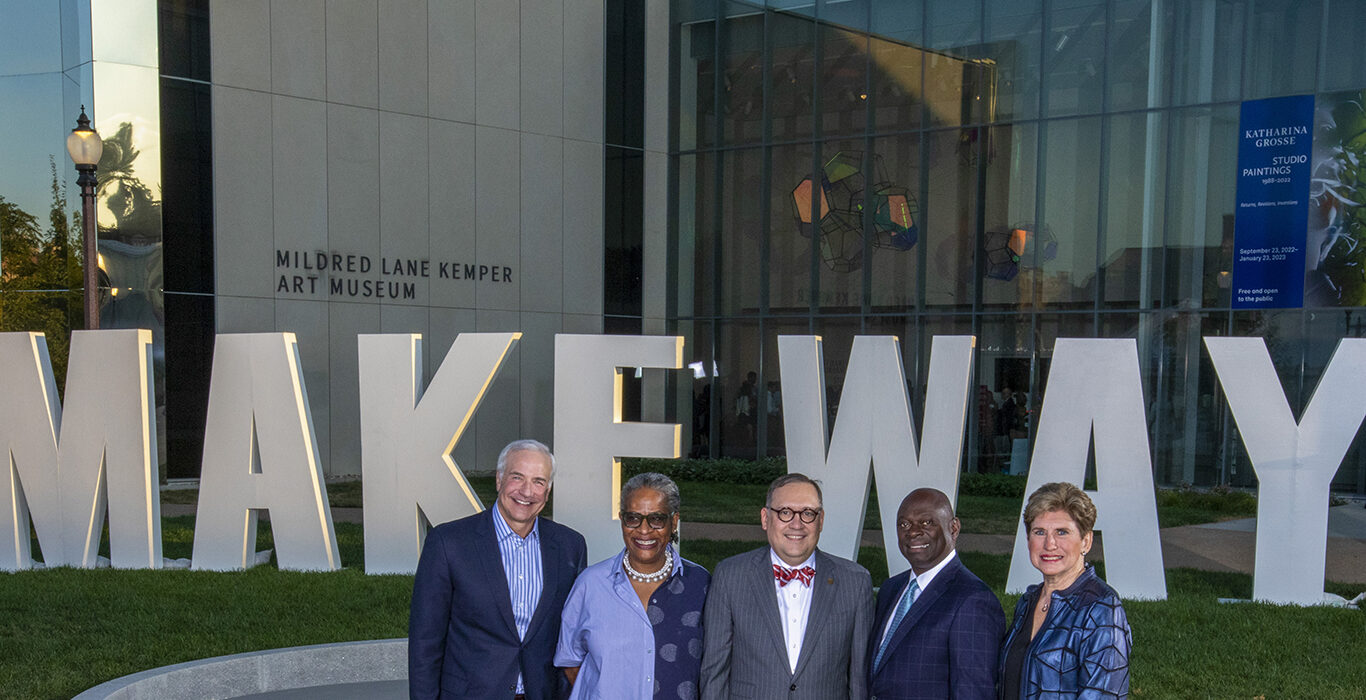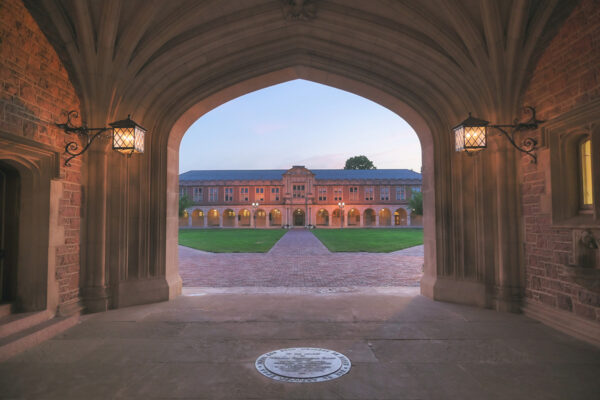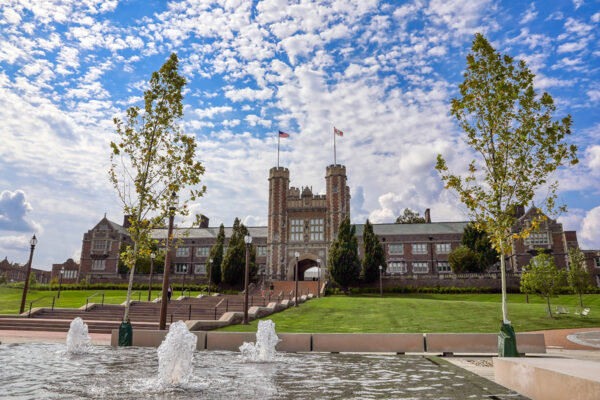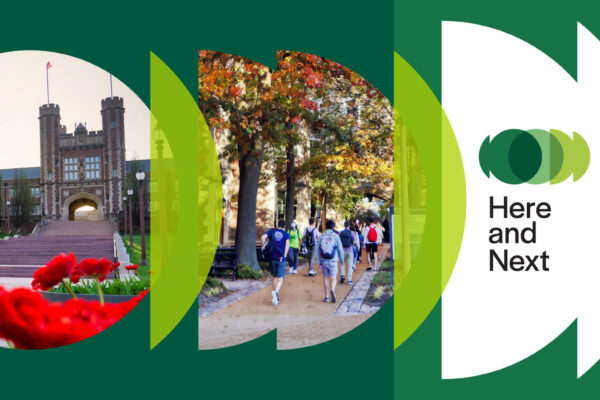Washington University in St. Louis has announced a transformative fundraising initiative that aims not only to increase financial resources for students at every level of need, including middle-income students, but also to provide a “best-in-class” experience for all students to learn, develop and flourish while on campus and beyond.
Called Make Way: Our Student Initiative, it will build financial resources for undergraduate scholarships, graduate scholarships and fellowships, and the student experience, helping Washington University remove financial barriers for the most qualified students and offer every student the freedom to navigate an educational path.
“With Make Way, we aim to be the most supportive university in the country for all of our students, including first-generation and lower-income students as well as those from middle-income families for whom a WashU education is a significant financial stretch,” said Chancellor Andrew D. Martin.
“And not only will we help them get here, but we’ll also help them thrive here, so they will leave prepared to make their unique mark on the world,” Martin added. “It is imperative for us to remain competitive, increase our distinction and live up to our moral obligation as a university to open our doors as fully as possible.”
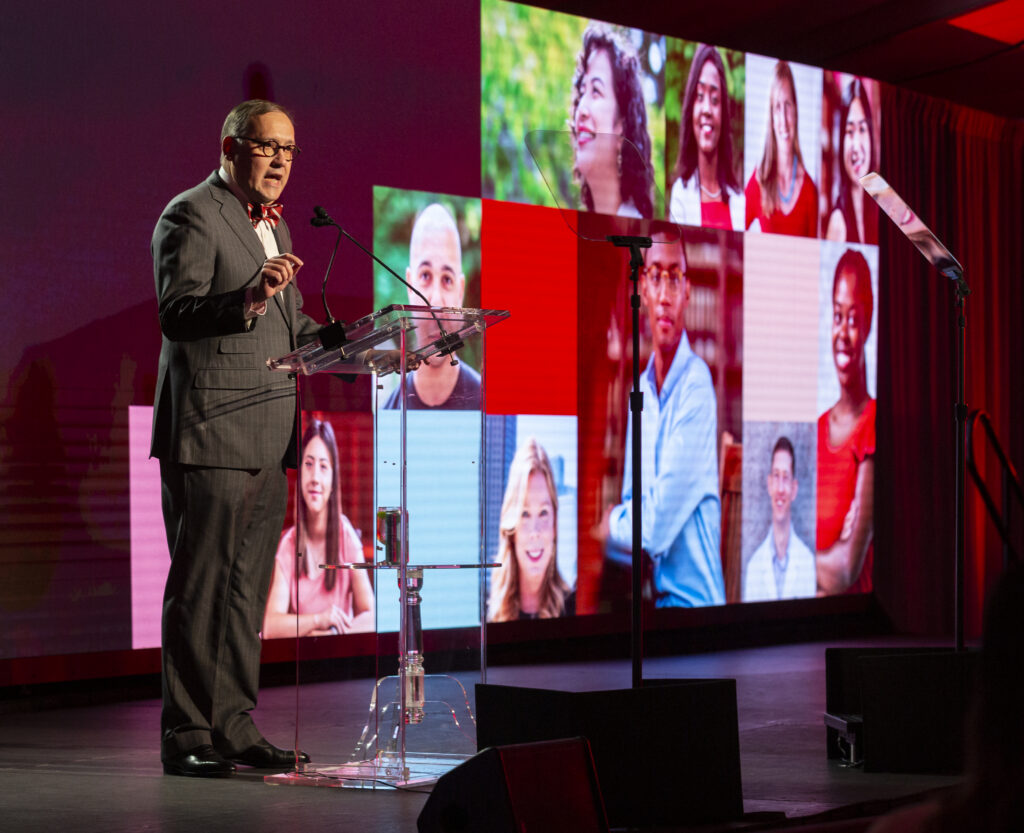
Martin announced Make Way Oct. 6 during a celebratory event in Tisch Park heralded by WashU cheerleaders and the Bear Nation Varsity Band. Faculty, students, donors and friends attended individual school receptions before joining university administrators and Board of Trustees members at the east end of the Danforth Campus for the announcement.
The goal is to raise a minimum of $600 million in gifts and commitments. More than $315 million has been raised already for the initiative thanks to the generosity of alumni, parents and friends. Gifts from some donors encourage others to give. WashU Trustee Lee Fixel, BSBA ’02, and his wife, Lauren, of New York, established the Catalyst Challenge, which provides matching funds for new endowed undergraduate scholarships of $200,000 or more. And Trustee Larry Thomas, BSBA ’77, created the Step Up Challenge to inspire annual scholarship donors to increase their level of support.
Thomas, a retired general partner at Edward Jones in St. Louis, is also helping lead Make Way. He serves as co-chair of the initiative with alumni Carrie Johnson, BArch ’89, a design strategist and social activist in Baltimore; Merry Mosbacher, MBA ’82, a retired partner at Edward Jones in St. Louis; and Eric Upin, AB ’83, parent of a current student, Washington University Investment Management Company board chair, and co-founder of Point Olema Capital Partners in the San Francisco area.
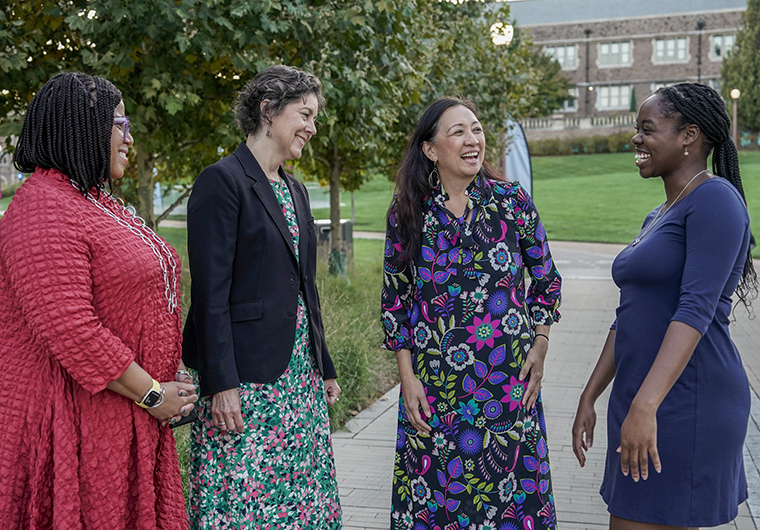
Make Way follows years of concerted efforts to increase access for bright and motivated students who want to study at WashU — regardless of their financial situations. Under Martin’s leadership since 2019, the university has redoubled those efforts.
A major step forward was Gateway to Success, a $1 billion investment in financial aid and student support for undergraduate, graduate and professional students. That historic investment, announced last fall, allowed the university to achieve its longtime goal of adopting a need-blind undergraduate admissions policy. It was made possible largely through an extraordinary 65% return on WashU’s endowment in fiscal year 2020-21.
The university hit a major milestone this fall in its quest to enroll more students with limited resources: 20% of the incoming Class of 2026 is Pell Grant-eligible, a 15 percentage-point increase from 10 years ago.
Martin acknowledged that there remains a significant gap between the university’s endowment resources for undergraduate scholarships and graduate student support and students’ demonstrated needs. “By further growing endowment resources through Make Way, we can bring our scholarship and fellowship packages into alignment with our closest competitors.”
Ronné Turner, vice provost for admissions and financial aid, said that because WashU falls behind other top-tier universities in the amount of scholarships and fellowships offered, “We’re missing out on educating and learning from some of the brightest students with the greatest potential to contribute to our community and our world.
‘By building a more diverse student body that reflects the racial, socioeconomic and geographic diversity of our region, country and world, we will be enriching the educational experience for all of our students.’
Ronné Turner
“By building a more diverse student body that reflects the racial, socioeconomic and geographic diversity of our region, country and world, we will be enriching the educational experience for all of our students,” Turner added.
“We need to ensure that the strength of our scholarship and fellowship support is equal to the exceptional quality of a WashU education and that we can expand access and opportunity for students at every income level.”
Freeing up operating budgets to focus on academics
Beverly Wendland, provost and executive vice chancellor for academic affairs, said that Make Way will make it possible for more financial aid resources to come from the endowment instead of schools’ operating budgets.
“Freeing up their operating funds will allow schools to reinvest in their academic programs, advancing excellence in academics, research and innovation and capitalizing on new opportunities for growth and excellence,” Wendland said. “Stronger schools and departments will attract stronger students and faculty.”
Make Way also will provide resources to recruit, train and support the most highly qualified graduate students.
“To attract the best graduate students, it is critical that we offer competitive stipends and fellowships, as well as provide top-notch professional development and career guidance,” Wendland said. “This includes providing our graduate students with opportunities to attend academic conferences, learn about various career pathways, and receive faculty mentoring and well-being services.”
‘Big hug’ of comprehensive support
Another key goal of Make Way is to provide students with comprehensive support — or as Anna Gonzalez, vice chancellor for student affairs, affectionately calls it, “a big hug” of wraparound support.
Providing increased support for the experiences that contribute to educating and caring for the whole student at WashU is essential, Gonzalez said.
“We need to level the playing field for all students so that each graduate leaves equally equipped to connect, contribute and succeed,” she said.
The need is great, and all WashU students would benefit from better connections to internships, research opportunities, study abroad and other meaningful experiences to ensure they are fully engaged and thriving at Washington University.
“Comprehensive student support, such as student health and well-being resources, career advising, leadership training and programming that fosters diversity and inclusion, will help students become changemakers in their families, their professions and their communities,” Gonzalez said.
“In addition, programs that focus on student success — such as student and family orientation; funds for necessities such as computers, textbooks and emergencies; winter and spring break career and leadership opportunities; and life skills seminars — will be transformational and change the trajectory not only for thousands of students, but also for their families and communities for generations,” Gonzalez said.
“Make Way is how we’ll remove the obstacles that stand in their way.”
Preventing roadblocks to a WashU education
Tuition could have been a roadblock between senior Emma D. McMillian and a WashU education. But thanks to the Stefanie Hill and John Pickett Scholarship, McMillian, of Chevy Chase, Md., is working toward a bachelor’s degree in computer science and mathematics and a master’s degree in computer science at the McKelvey School of Engineering.
The daughter of older parents on the cusp of retirement when she was looking at colleges, McMillian said she doesn’t know what she would have done without scholarship support.
“I would have had a lot of student debt. Scholarships allowed me to not worry about paying off loans after graduation. I am so grateful for this big gift in my life.
“Being awarded this scholarship gave me a lot of confidence,” added McMillian, who is in NASA’s Pathways Engineering Internship program and is passionate about using computer science and artificial intelligence to make the world better.
“First-year students can feel very out of place or alone. But coming to WashU, meeting others with scholarships and feeling supported by faculty, staff and administrators made me feel like I’m supposed to be here. I do belong here. I’m not just a number.”
For Washington University to live up to its full potential both in terms of educational programs and research, and for us to serve the community and the world, it’s absolutely crucial that our doors are open to students with incredible talent, regardless of their opportunity.
Chancellor Andrew D. Martin
Make Way will help support key aspects of the university’s 10-year strategic plan, “Here and Next,” which Wendland unveiled Oct. 3. Of the strategic plan’s five guiding principles, two of them — academic distinction and equity, diversity and inclusion — are at the heart of Make Way.
Make Way also addresses four of the strategic plan’s nine topic areas that represent the university’s highest priorities — campus wellness, graduate and professional education, personal and professional growth, and undergraduate education.
“For Washington University to live up to its full potential both in terms of educational programs and research, and for us to serve the community and the world, it’s absolutely crucial that our doors are open to students with incredible talent, regardless of their opportunity,” Martin said. “And we need to have the resources to ensure that every one of our students can thrive.”
To learn more about Make Way and how to support the initiative, visit the Make Way website.
